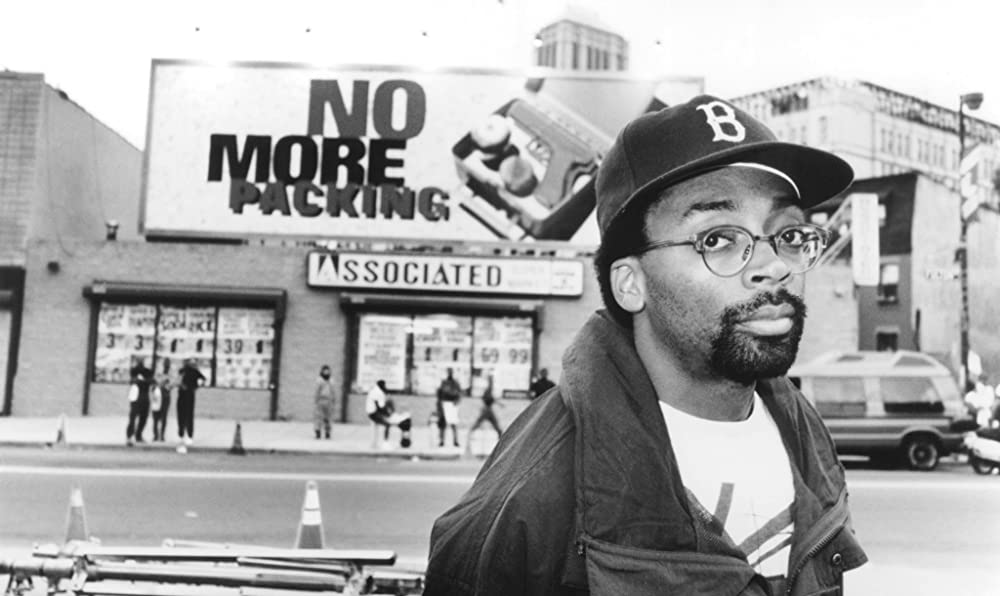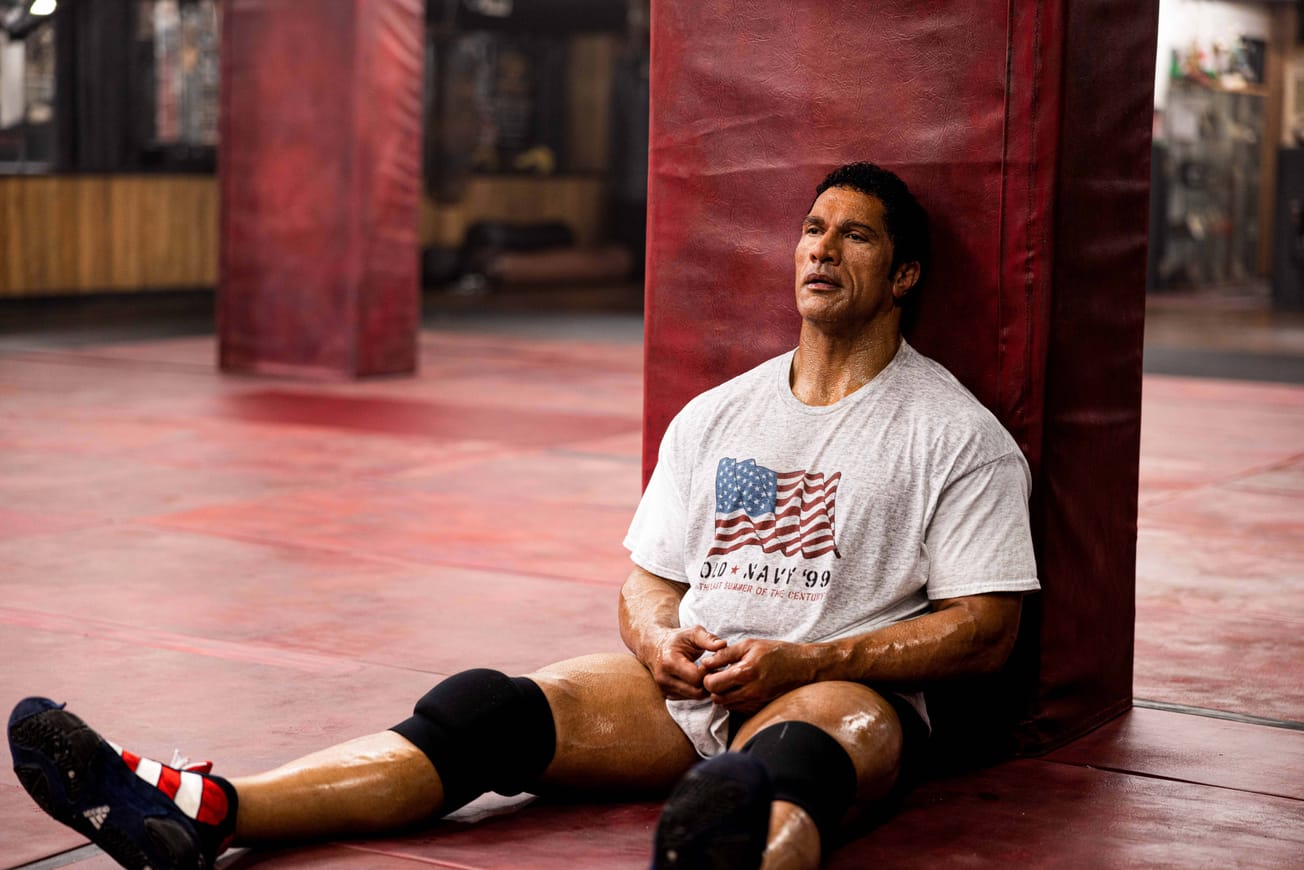By Tilly Long, Third Year, English Literature
Certainly one of Hollywood’s most unique artistic voices, the films (often referred to as Spike Lee joints) of Spike Lee only grow more relevant as the years progress.
The Oscars have historically been castigated for awarding Best Picture to the likes of Green Book (2018) and its aged equivalent Driving Miss Daisy (1989), both examples of the ever problematic ‘race reconciliation movie.’ The latter won 5 Academy Awards, the same year Spike Lee’s seminal Do the Right Thing (1989) was practically ignored much to the alarm of many including actress Kim Bassinger, who actually called out the snub in her speech: ‘There is one film missing from this list, that deserves to be on it, because ironically, it might tell the biggest truth of all.’
Spike Lee’s filmography has grown increasingly bold since the early nineties, each feature digging deeper to represent Black experiences in America, despite the uncomfortable reckoning this may have for some white viewers. His decision to adapt the Nation of Islam’s spokesman Malcolm X’s autobiography, was an early hallmark of this. Its opening scene depicts the US flag aflame, with Denzel Washington’s voiceover intact: ‘We’ve experienced only the American nightmare.’
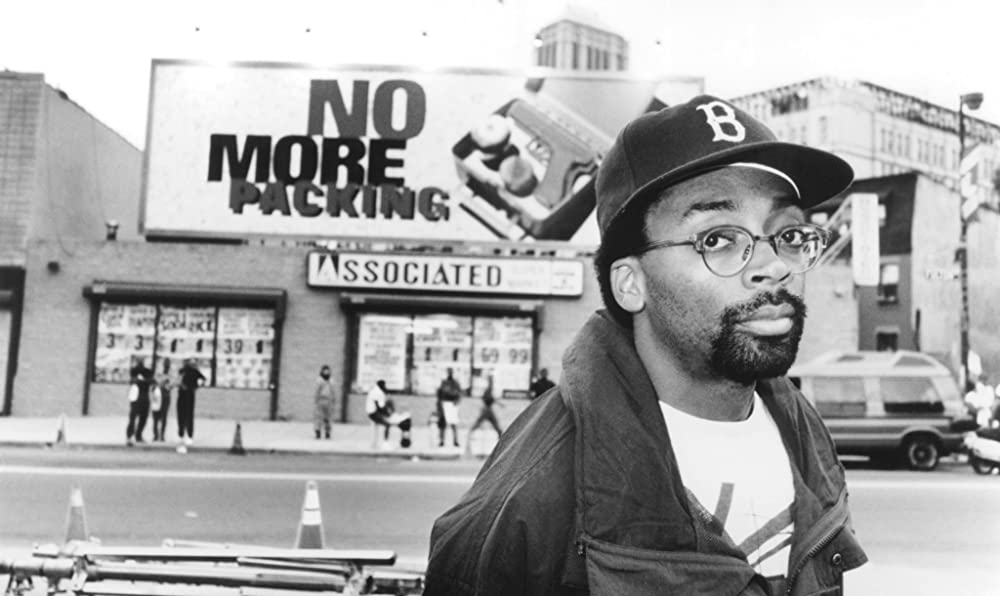
His most recent ‘joint’, Da 5 Bloods (2020), epitomises this sense of uneasy urgency, following a squad of Black US Army soldiers who return to Vietnam decades later, with spliced in shots of real mutilated Vietnamese bodies. Emphasising shocking violence like this has become a trademark of Lee’s signature style, which is characterised by activism and rage.
Spike Lee’s filmography has grown increasingly bold since the early nineties, each feature digging deeper to represent Black experiences in America
She's Gotta Have It (1986)
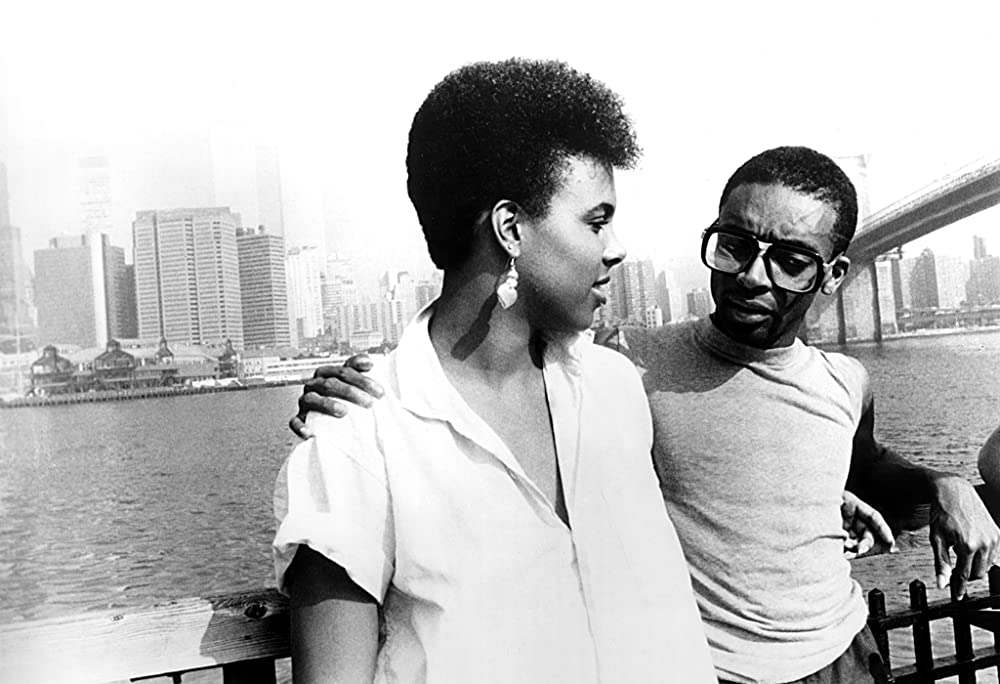
In many ways, Lee’s first feature film, She’s Gotta Have It (1986) is anything but what you probably have come to expect from the director. Entirely devoid of brutality, the film begins with a brooding jazz score and succession of nostalgic photographs of children on swings and playing on the streets of Fort Greene, Brooklyn.
The protagonist is Nola Darling, who immediately breaks the fourth wall to tell us she doesn’t ‘believe in labels.’ We then meet her three lovers, one of whom is none other than a young Spike Lee playing the comical Mars Blackmon, beginning a tradition of making cameos in his own films. Shot largely in black and white, the scenes are consistently intimate, revolutionising black sexuality onscreen in its celebration of Nola’s body.
Similarly groundbreaking in the inherent act of positioning a polyamorous Black woman as the lead of his first film, it's safe to say the concept was way ahead of its time. It makes sense, therefore, that Lee created a 2017 Netflix comedy television series based on and using the same title as She’s Gotta Have It, expanding on and updating notions of black femininity.
Do the Right Thing (1989)
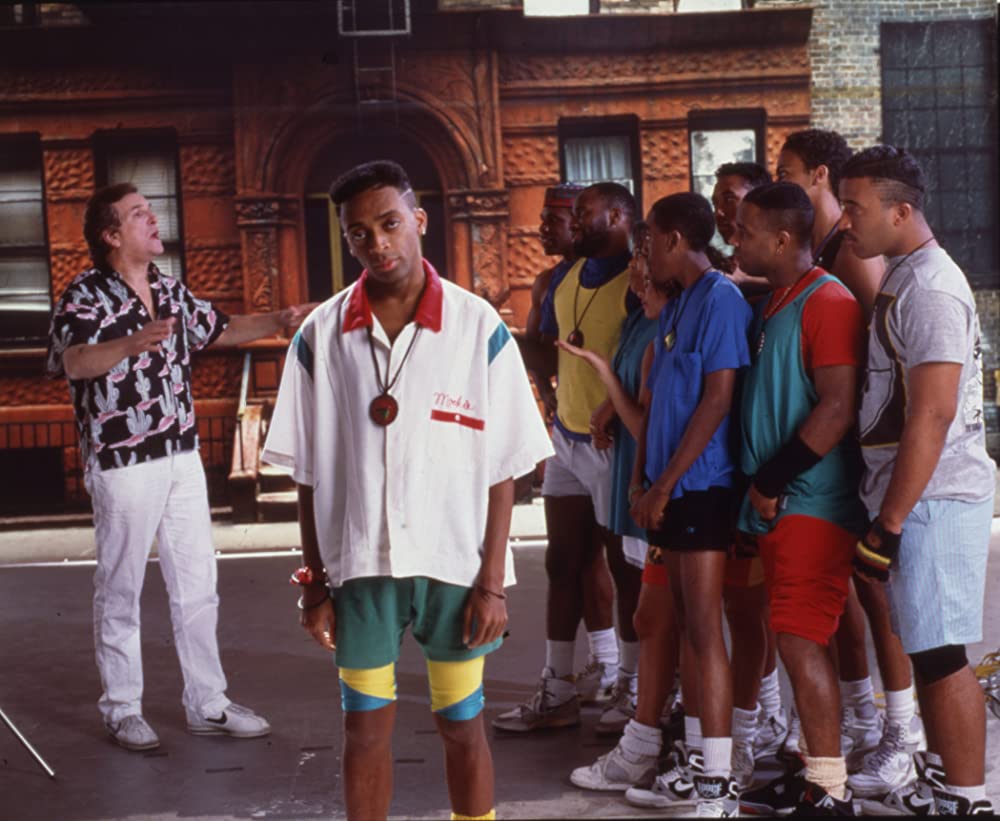
In one of my favourite opening scenes ever, Do the Right Thing starts with a generous four minute dance by Rosie Perez to the incredibly adpt ‘Fight the Power’ by Public Enemy, which was actually written at the request of Spike Lee. The film combines all elements of a classic Lee joint: a fleet of idiosyncratic characters, an influx of dazzling primary colours, and an attempt to capture one neighbourhood’s simmering racial tension. The plot is simple enough; Buggin Out (Giancarlo Esposito) becomes upset upon discovering the local Italian pizzeria displays no black actors on its wall of fame. This becomes an obvious symbol of racism, culminating in a ploy to destroy the restaurant.
Eventually, an inevitable tragedy occurs when police officers murder the innocent and enigmatic Radio Raheem (William Goldwyn Nunn III). Thirty one years since its release, this film is horrifically relevant to the summer of 2020, again rendering the works of Lee as eternally meaningful and incredibly necessary.
BlacKkKlansman (2018)
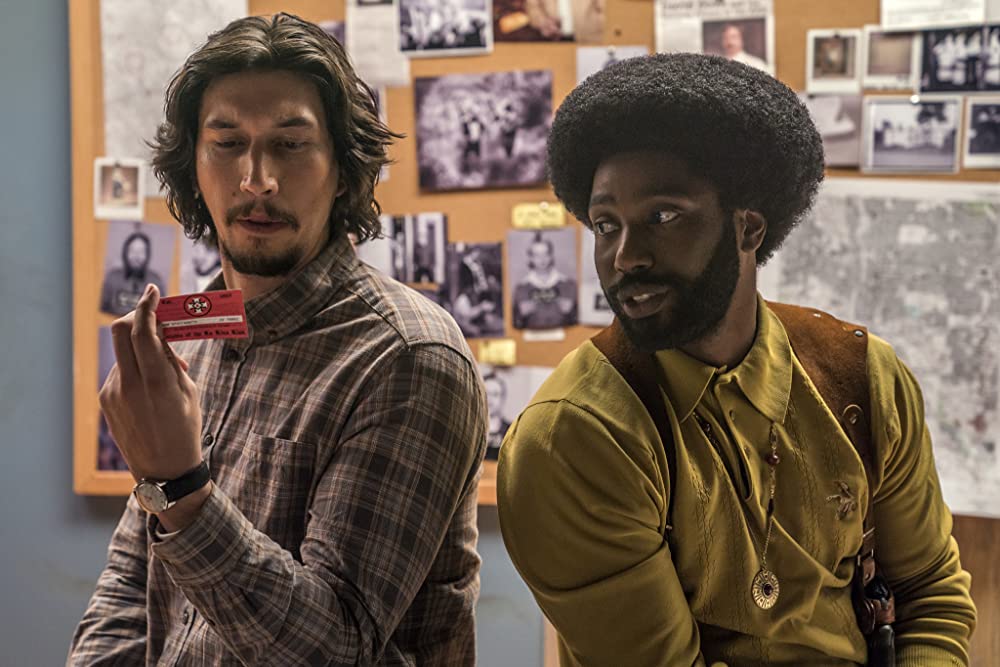
My personal favourite, Blackkklansman (2018) is a biographical comedy crime film, based on Ron Stallworth’s memoir. The story follows Colarado’s Springs Police Department's first Black officer, who takes on a potentially fatal job: infiltrating the Ku Klux Klan. Posing as a white man over the phone, Stallworth (John David Washinngton) manages to be recruited by former Klan Grand Wizard David Duke (Topher Grace), and sends his white coworker (Adam Driver) to be formally inducted.
The film interestingly begins with a scene from Best Picture Winner Gone With The Wind (1939), remembered today for the way it nostalgized white supremacism. It then cuts to an angry white man (Alec Baldwin) giving a racist speech, with a projector behind him reeling one of most racist films ever made, Birth of a Nation (1915). Blackkklansman ends with a tribute to anti-fascist counter-protester Heather Heyer, who was killed in the 2017 Charlottesville car attack during the ‘Unite the Right’ rally.
Spike Lee’s filmic examination of racism in the US is remarkable in the way it spans decades but often goes unrewarded or acclaimed, leaving us to question why exactly the consistent winners of every category tend to be white. Drawing his audience’s attention to perpetuated racist stereotypics in formerly celebrated historical cinema whilst associating them with modern day discrimination, allows him to further elevate America’s hypocrisy and track record for their violent injustice towards Black Americans.
Never defined by this though, Lee remains culturally pertinent on every level, always championing black excellence. He finally won his first Oscar in 2019 for Best Adapted Screenplay, whilst paying tribute to the late Kobe Bryant by wearing a custom purple suit in a nod to the LA Lakers uniform.
In conversation with MinuteMade student film festival
The female biopics to check out today
Most recently, I was overjoyed and amused to see Lee interview the sardonic New York author Fran Lebowitz, in Martin Scorsese directed 2021 Netflix series Pretend It’s a City. While Lebowitz contested the notion that a great athlete could ever be compared to a great artist, Lee eloquently argued: ‘Michael Jordan is on par with Sinatra, Michelangelo, Count Basie, Duke Ellington.’ He has also been asked to chair the Cannes Film Festival this year, which will make him the first black jury head!
Featured: IMDb
What is your favourite Spike Lee film?

